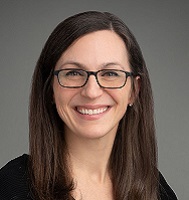Kathleen Kastner, MD
Position title: Assistant Professor
Address:
Division of Developmental Pediatrics & Rehabilitation Medicine
For Academic Inquiries: (608) 263-8663

Education
BS, University of Illinois Urbana–Champaign, Urbana, Illinois
MD, University of Chicago Pritzker School of Medicine, Chicago, Illinois
Residency, Pediatrics, University of Chicago Comer Children’s Hospital, Chicago, Illinois
Chief Residency, Pediatrics, University of Chicago Comer Children’s Hospital, Chicago, Illinois
Fellowship, Developmental and Behavioral Pediatrics, University of Chicago Comer Children’s Hospital, Chicago, Illinois
Professional Activities
Dr. Kathleen Kastner is assistant professor (CHS) in the Division of Developmental Pediatrics and Rehabilitation Medicine. She is the rotation director for the developmental behavioral pediatrics rotation for the pediatric residency and medical student elective. Additionally, Kastner serves as an assistant block leader for the University of Wisconsin School of Medicine and Public Health (SMPH) Phase 1 Human Family Tree course and as the medicine discipline training coordinator for the Wisconsin Leadership in Neurodevelopmental and Related Disorders (LEND) interdisciplinary training program. Further, Kastner enjoys her role as a CORE Mentor for the pediatrics residency program.
Clinical Interests
Kastner is a developmental behavioral pediatrician who is committed to providing high-quality care for children with developmental delays and disabilities. Her practice also focuses on children at an increased likelihood for developmental differences due to prematurity or complex medical history. Kastner is the clinic director for the Newborn Follow Up Clinic and practices in the Autism and Developmental Disabilities Clinic.
Research Interests
Kastner’s research interests are in medical education. She explores expanding curriculum related to neurodiversity-affirming care and improving resident training and expertise in discussing developmental differences with families.